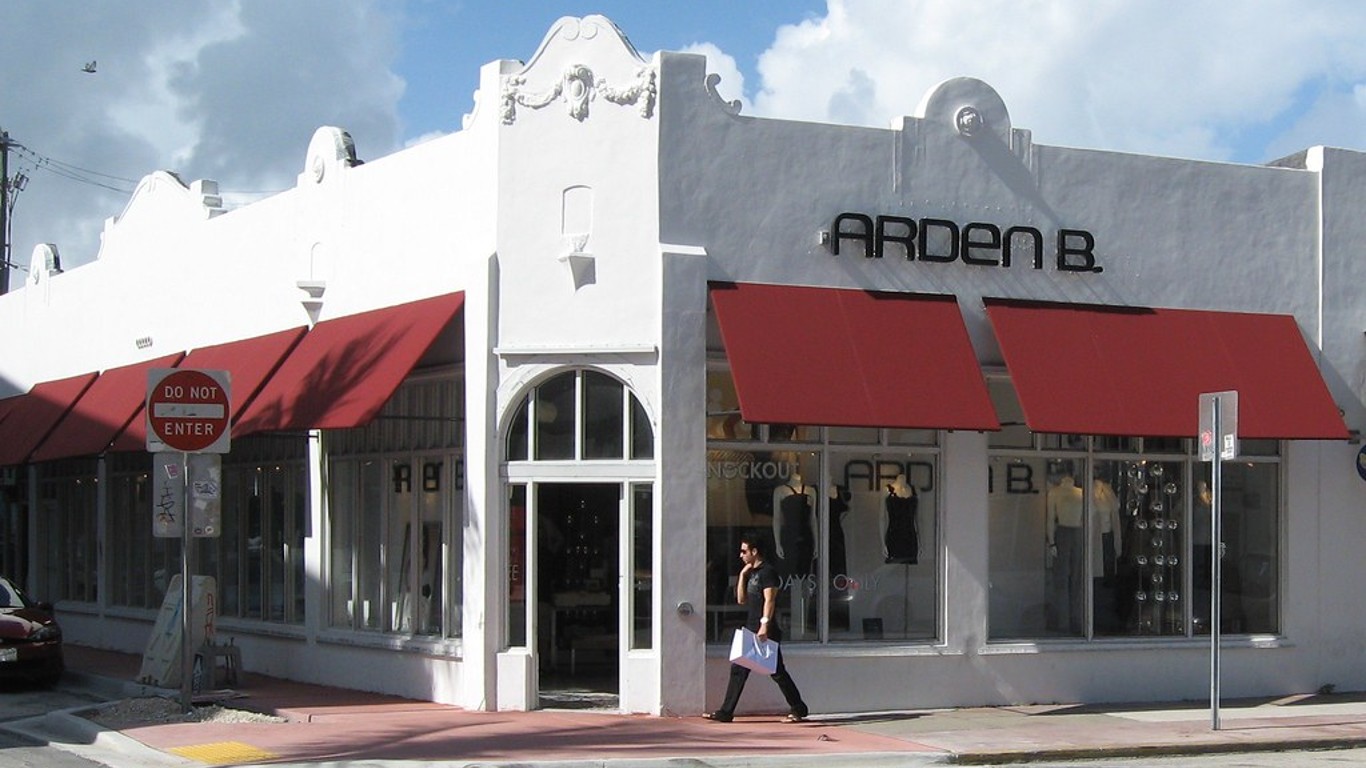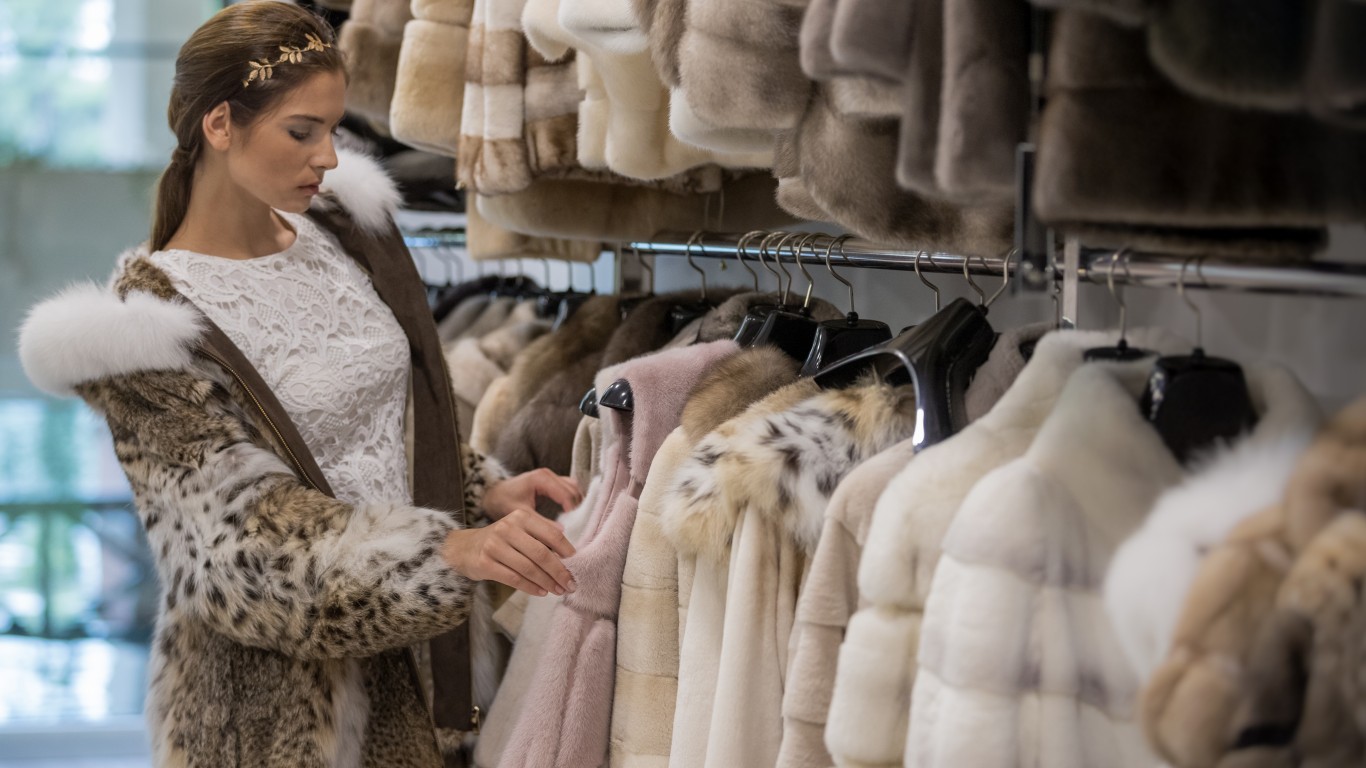
A fashion brand can become iconic for several reasons. It might introduce a radical new design, like Alexander McQueen’s dresses with wings. It might have endured for decades, like Chanel, Gucci, or Yves St. Laurent. It might have become associated with a well-remembered place in time, like the pillbox hat designed by Halston for Jackie Kennedy.
Whether it’s the little black dress, hippie-chic, or parachute pants, fashion has had an influence on culture and figures prominently in our memories of childhood, teen years, and adulthood. Some of the brands that brought us these styles have come and gone, but for the most part, they are fondly remembered. (But these are fashion trends only kids from the ‘90s will remember.)
To find the iconic fashion brands that no longer exist, 24/7 Tempo gleaned information from sources such as the Encyclopedia of Fashion, fashion industry media including WWD, and several financial and general interest sites. Though some items under the brand name can still be purchased, the list focused on companies that are no longer manufacturing products under their name.
According to Fashion Insiders & Co., fashion brands often fail because they make bad manufacturing choices. They also negotiate manufacturing prices without a clear understanding of operating margins and profit margins. And they commit to large minimum order quantities without a proven plan to sell the merchandise quickly, leading to overstocking. Overstock frequently occurs in boom times, when success obscures judgment.
Click here to see iconic fashion brands that no longer exist
The fickle tastes of teens sounded the death knell for brands such as Delia’s and Merry-Go-Round. For plus-size retailer Avenue, a decline in foot traffic hastened its demise. Related to that of course is the advent of e-commerce, which was a factor in the downfall of The Limited. All of these stores were mall staples, and malls have been negatively impacted by online shopping.
Other brands faded into the mists of fashion history when their visionary founders – such as Claire McCardell and Jacques Fath – passed away just as their brands were taking off.
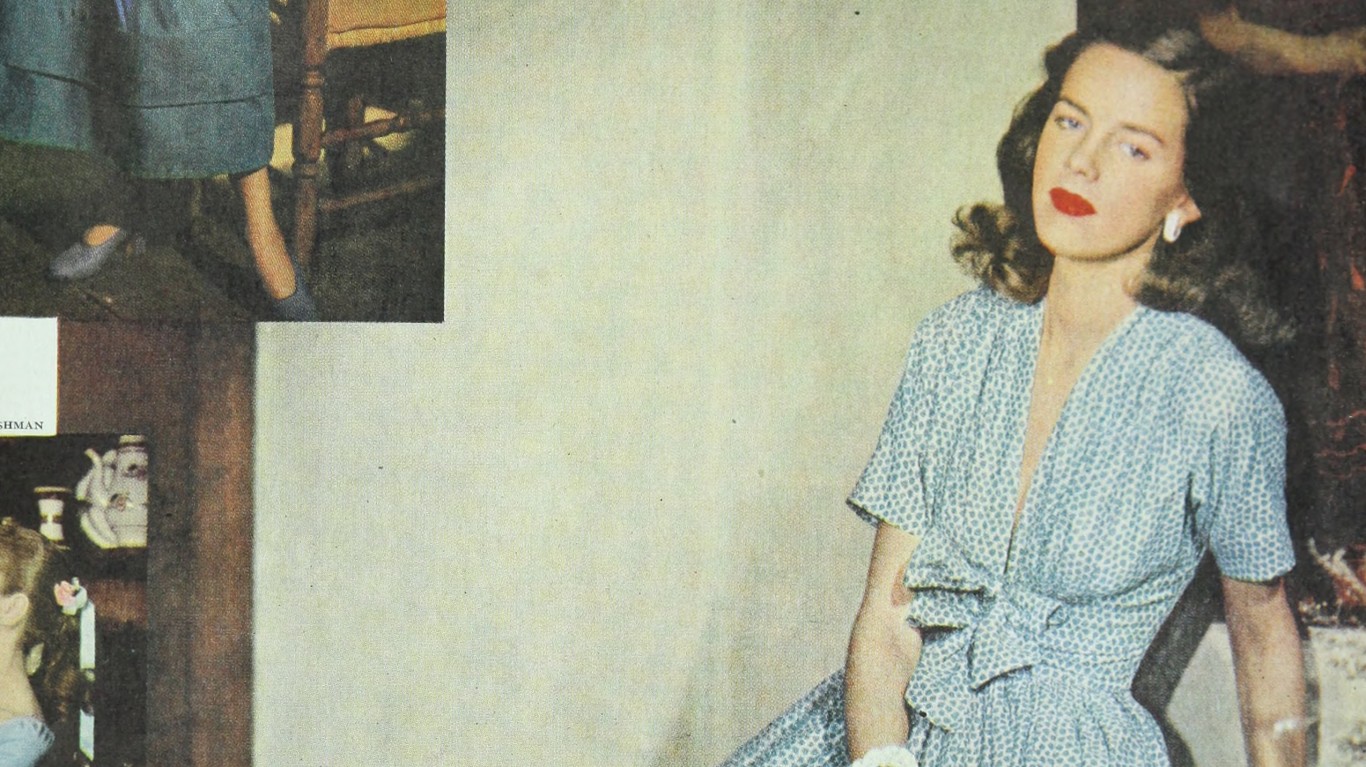
Claire McCardell
> Year of discontinuation: 1958
Claire McCardell was known for creating women’s ready-to-wear clothing and items such as the blue denim Pop-over dress. McCardell avoided Paris fashion shows, she said, because she did not want to be influenced by French styles. After her death from cancer in 1958, McCardell’s family shut down the brand.
[in-text-ad]
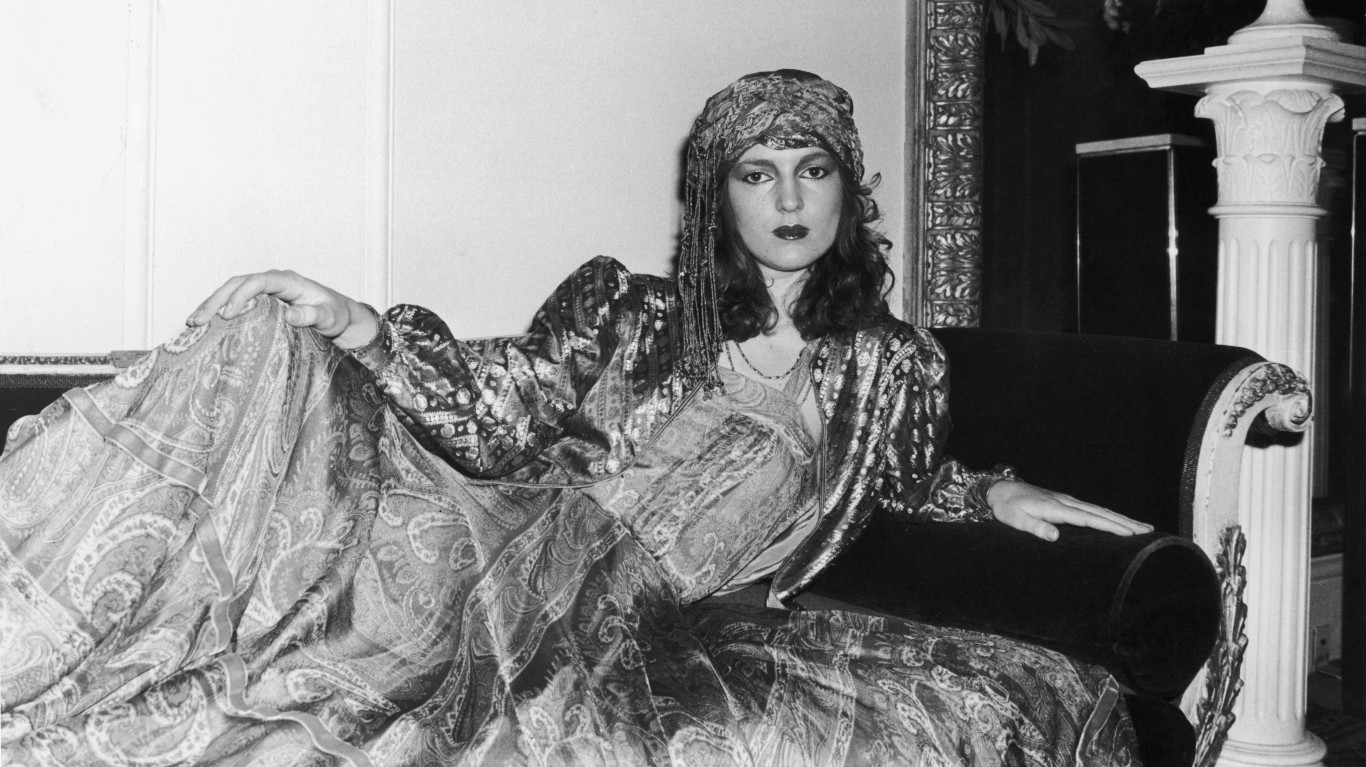
Thea Porter
> Year of discontinuation: 1981
Thea Porter, who was born in Jerusalem, brought a Middle Eastern aesthetic to her line of clothes, that included loosely fitting robes and evening gowns made from silks, brocades, and velvets adorned with metallic embroidery and spangles. She also designed flouncy gypsy skirts to capitalize on a hippie-chic trend. Her style found a following in the 1960s and 1970s but had run its course by the early 1980s.
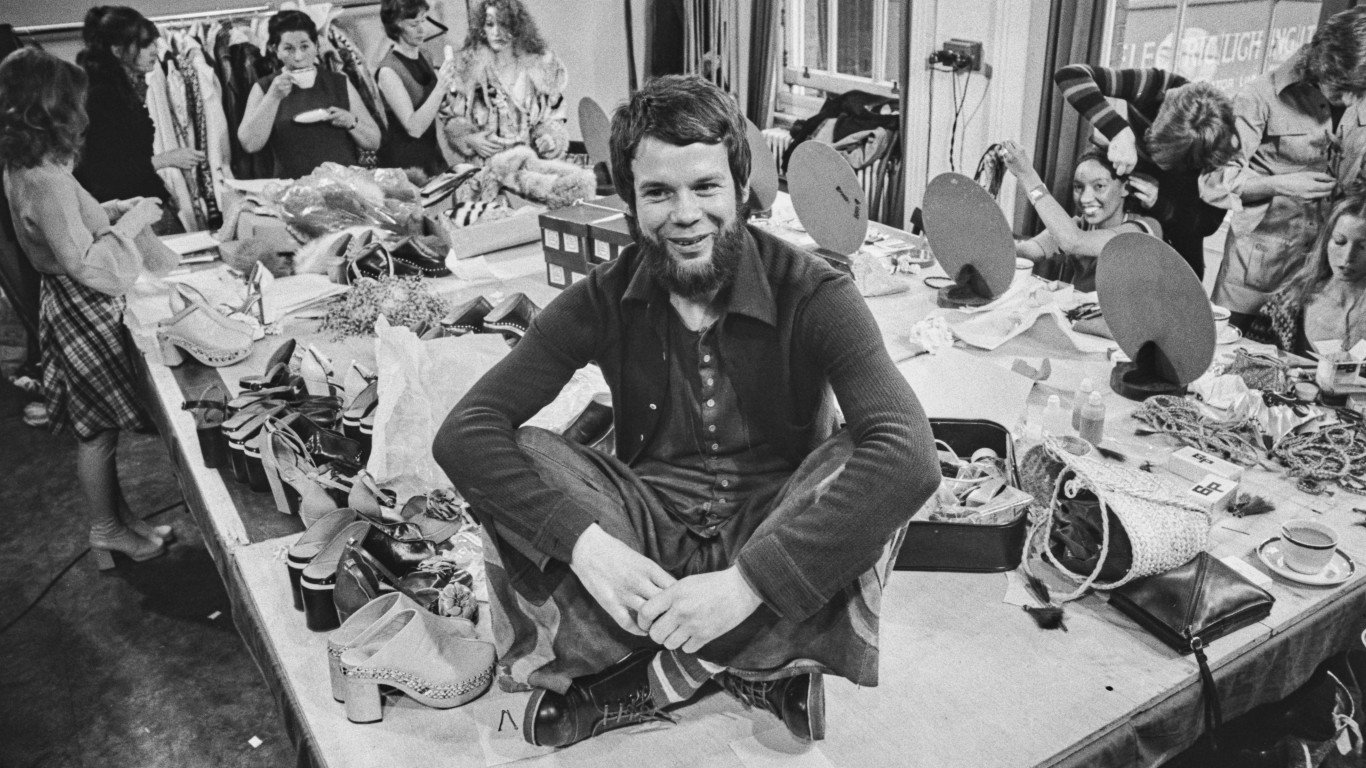
Bill Gibb
> Year of discontinuation: 1986
Bill Gibb, a designer from Scotland, tried to capture the free spirit mood of the 1960s and 1970s with a line of bohemian clothes. He also was known for his evening gowns made from exotic fabrics with embroidered nets and lace. Gibb was named Vogue’s designer of the year in 1970, and his popularity was such that the London department store Harrods had a section called the “Bill Gibb Room.” His line fell out of fashion in the late 1980s, just before he passed away from cancer in 1988.
Sasson Jeans
> Year of discontinuation: 1986
Sasson Jeans were the must-have apparel in the late 1970s and early 1980s, with their French cut and embroidered designs. But the makers of the brand were hurt by imports and the marketplace had matured and moved on to other styles. Sasson Jeans became faded jeans in the mid-1980s, and the company filed for Chapter 11 bankruptcy protection in 1986.
[in-text-ad-2]
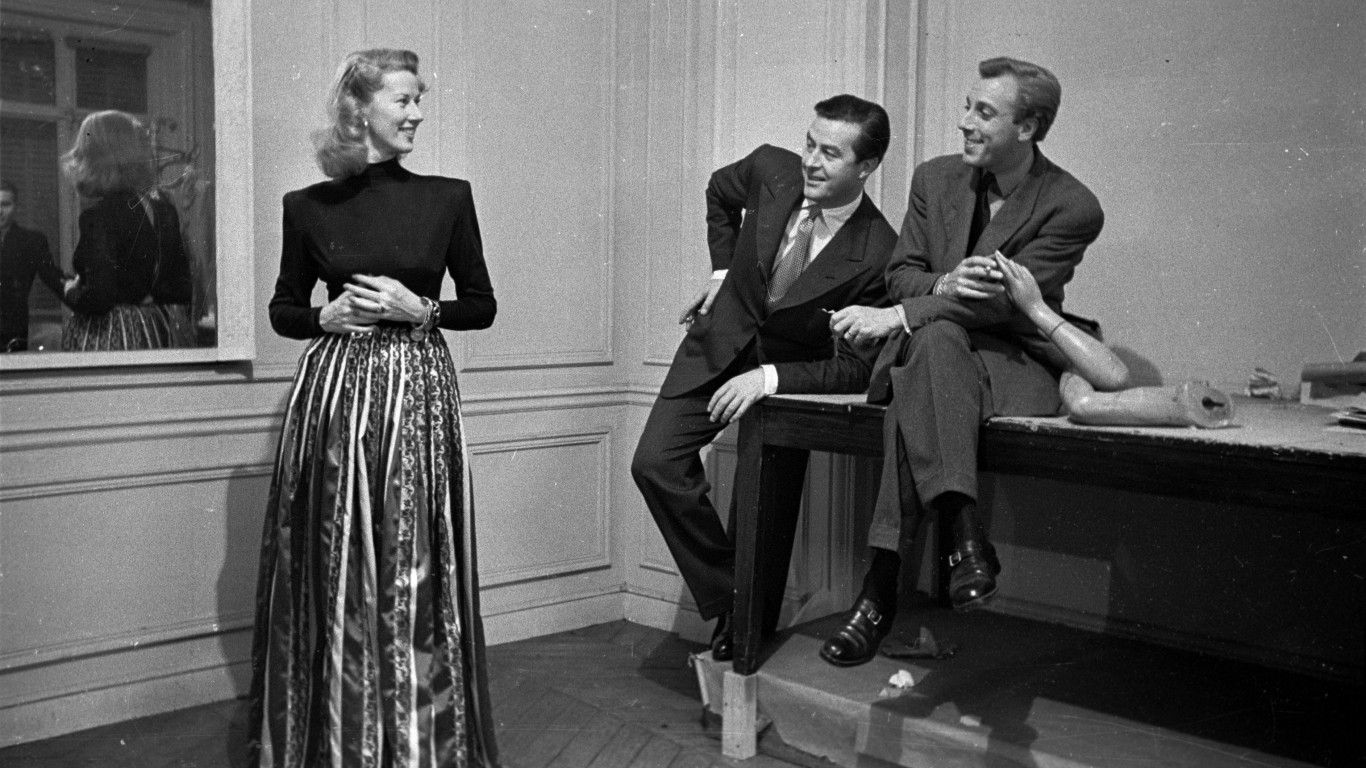
Jacques Fath
> Year of discontinuation: 1992
Jacques Fath is credited with helping to revive the Paris fashion industry after World War II. His clothes were known for celebrating the female form with plunging necklines and close-fitting hourglass-shaped dresses. He also used diagonal lines and floating panels to project a sense of movement. Even though he died from leukemia at age 42 in 1954, his fashion line continued under the aegis of his wife, Geneviève. She eventually closed the fashion side of the business but kept the perfume and accessory portion in operation until it was bought out by several companies in 1992.
Merry-Go-Round
> Year of discontinuation: 1996
Merry-Go-Round was a national U.S. clothing chain that flourished in the 1970s and 1980s, gearing its clothes toward teens with items such as fingerless fishnet gloves and skinny leather ties. The style was popularized in movies such as “Desperately Seeking Susan,” starring Madonna. Merry-Go-Round stopped spinning in 1996 after it was unable to appeal to a new generation.
[in-text-ad]
Kinney Shoes
> Year of discontinuation: 1998
Kinney Shoes started out as a family-owned shoe store in 1894. It was eventually purchased by Venator Group and became a mall staple, billing itself as “The Great American Shoe Store.” Besides casual and dress shoes, Kinney also had a line of athletic footwear. (Foot Locker began as a Kinney offshoot in 1974, but still survives.) A drop in demand for sneakers and other athletic goods, and increased competition from discounters and specialty stores, squeezed the brand. The Venator Group (formerly Woolworth) closed all the Kinney stores in 1998 because of declining sales.

Bugle Boy
> Year of discontinuation: 2001
Bugle Boy became well known for its television advertising campaign featuring the phrase, “Excuse me, are those Bugle Boy jeans that you’re wearing?” Besides jeans, the company also had a line of parachute pants – nylon twill pants with zippers – and cargo pants. The clothes were popular with men and boys but did not resonate with women. It filed for bankruptcy in 2001. Ohio-based Schottenstein Stores bought the brand intending to revive it, but it hasn’t been heard from since.

Miu Miu menswear
> Year of discontinuation: 2008
Miuccia Prada launched the Miu Miu womenswear line in 1993, and a menswear line in 1999. She thought the new brand would be a more playful style than the minimalist designs of Prada, which was well-established in the fashion world. Miu Miu also was more affordable than Prada. The new line was modeled by Kate Moss and actresses Drew Barrymore and Kirsten Dunst, and worn by Madonna. Miu Miu projected a youthful look with graphic-print shirts accessorized by hats, ties, and belts. The menswear brand did not fare as well and was shut down in 2008 when the company chose to focus on the womenswear line.
[in-text-ad-2]
Arden B
> Year of discontinuation: 2014
Teen apparel retailer Wet Seal launched Arden B in 1998 to compete with mall denizens Bebe, Guess, and Express. The brand featured what Fashionista called “sexed-up separates.” The brand came to an end in April of 2014, when Wet Seal shut down Arden B’s operations.
Delia’s
> Year of discontinuation: 2014
Delia’s, once a teen favorite in the 1990s, was known for its maxi skirts and neon track jackets. But fickle teens gravitated toward the styles of American Apparel and PacSun, then Forever 21 and Swedish clothing retailer H&M cut into its market share. After several years of faltering sales, Delia’s filed for Chapter 11 bankruptcy protection and shuttered its stores in 2014.
[in-text-ad]

The Limited
> Year of discontinuation: 2017
The shift to online commerce and the emergence of fast-fashion chains spelled doom for The Limited. The mall stalwart shuttered its remaining stores in 2017, axing 4,000 jobs.

Wet Seal
> Year of discontinuation: 2017
Wet Seal, which was in business for 55 years, was the go-to store for fashion-conscious teens. But when it failed to come up with fresh capital or a buyer, the Irvine, California-based company closed all its stores in January 2017 – 171 of them in 42 states. Wet Seal had filed for Chapter 11 bankruptcy protection two years earlier. Versa Capital Management, Wet Seal’s private-equity backer, had acquired the company out of bankruptcy protection. But sales continued to fall.
[in-text-ad-2]

Avenue
> Year of discontinuation: 2019
New Jersey-based Avenue, founded in 1987, was a plus-size retailer. It closed all 222 stores in 33 states in August of 2019 because of decreasing sales and reduced foot traffic. Hilco Merchant Resources and Gordon Brothers jointly managed the liquidation. In 2012, private-equity company Versa Capital Management had purchased the retailer in a bankruptcy auction.
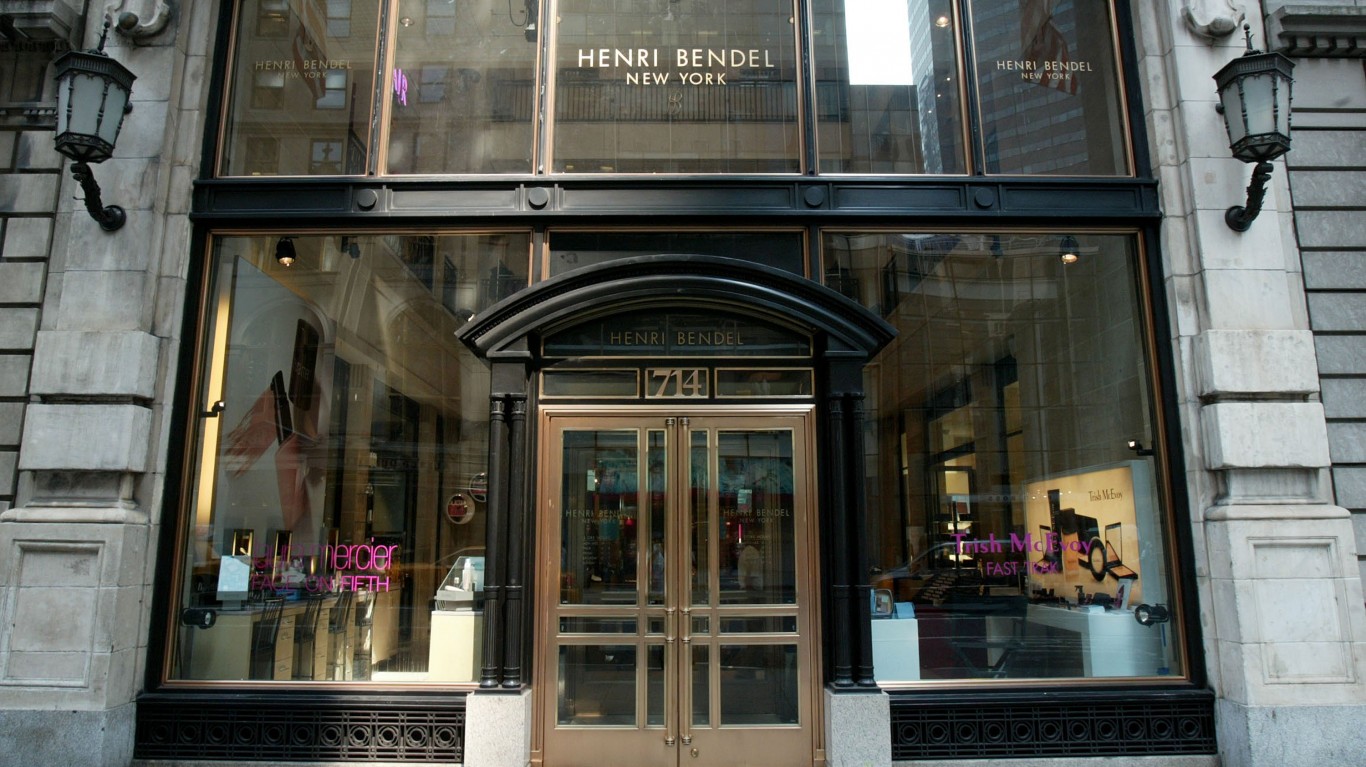
Henri Bendel
> Year of discontinuation: 2019
For 123 years, Henri Bendel was synonymous with luxury retail. Its flagship store on Manhattan’s Fifth Avenue helped establish that street as one of the world’s toniest fashion destinations. The store was known for its handbags, jewelry, and sunglasses. Henri Bendel the designer introduced Coco Chanel’s styles to America. And he once employed a young Andy Warhol as an in-house illustrator, according to the Bendel website. The brand was bought by L Brands in 1985. Henri Bendel was a small part of L Brands’ retail holdings, and L Brands said declining sales was the reason why it closed its 23 stores and website in 2019.
[in-text-ad]

Zac Posen
> Year of discontinuation: 2019
Designer Zac Posen made a name for himself while still in his 20s, crafting glamorous gowns and cocktail dresses. One creation was a monochrome dress worn by actress Natalie Portman to a “Star Wars” premiere in 2002, just one year after Posen had launched his own label. Posen’s label shuttered suddenly in April 2019. At the time, Posen told WWD that “the board made a difficult decision. We were in a sale process and we ran out of time.”
Are You Still Paying With a Debit Card?
The average American spends $17,274 on debit cards a year, and it’s a HUGE mistake. First, debit cards don’t have the same fraud protections as credit cards. Once your money is gone, it’s gone. But more importantly you can actually get something back from this spending every time you swipe.
Issuers are handing out wild bonuses right now. With some you can earn up to 5% back on every purchase. That’s like getting a 5% discount on everything you buy!
Our top pick is kind of hard to imagine. Not only does it pay up to 5% back, it also includes a $200 cash back reward in the first six months, a 0% intro APR, and…. $0 annual fee. It’s quite literally free money for any one that uses a card regularly. Click here to learn more!
Flywheel Publishing has partnered with CardRatings to provide coverage of credit card products. Flywheel Publishing and CardRatings may receive a commission from card issuers.
Thank you for reading! Have some feedback for us?
Contact the 24/7 Wall St. editorial team.
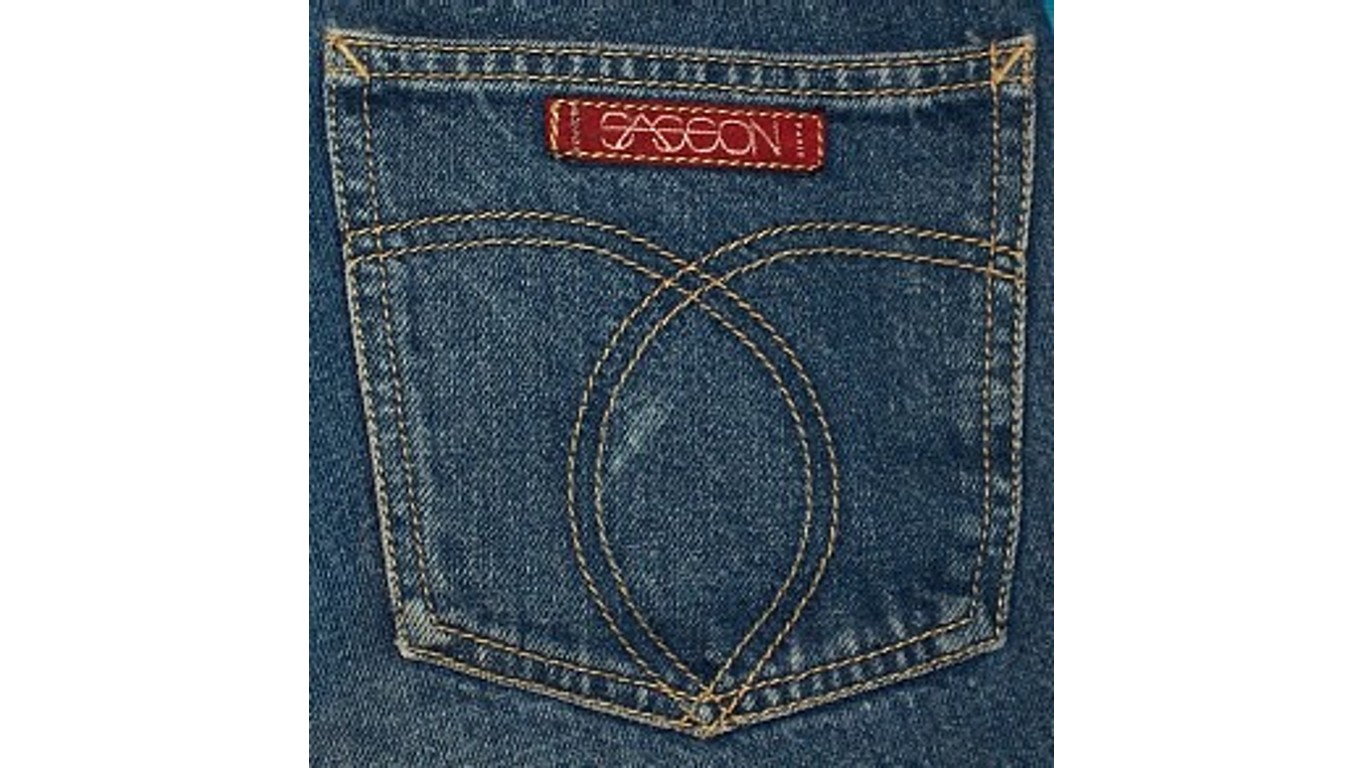
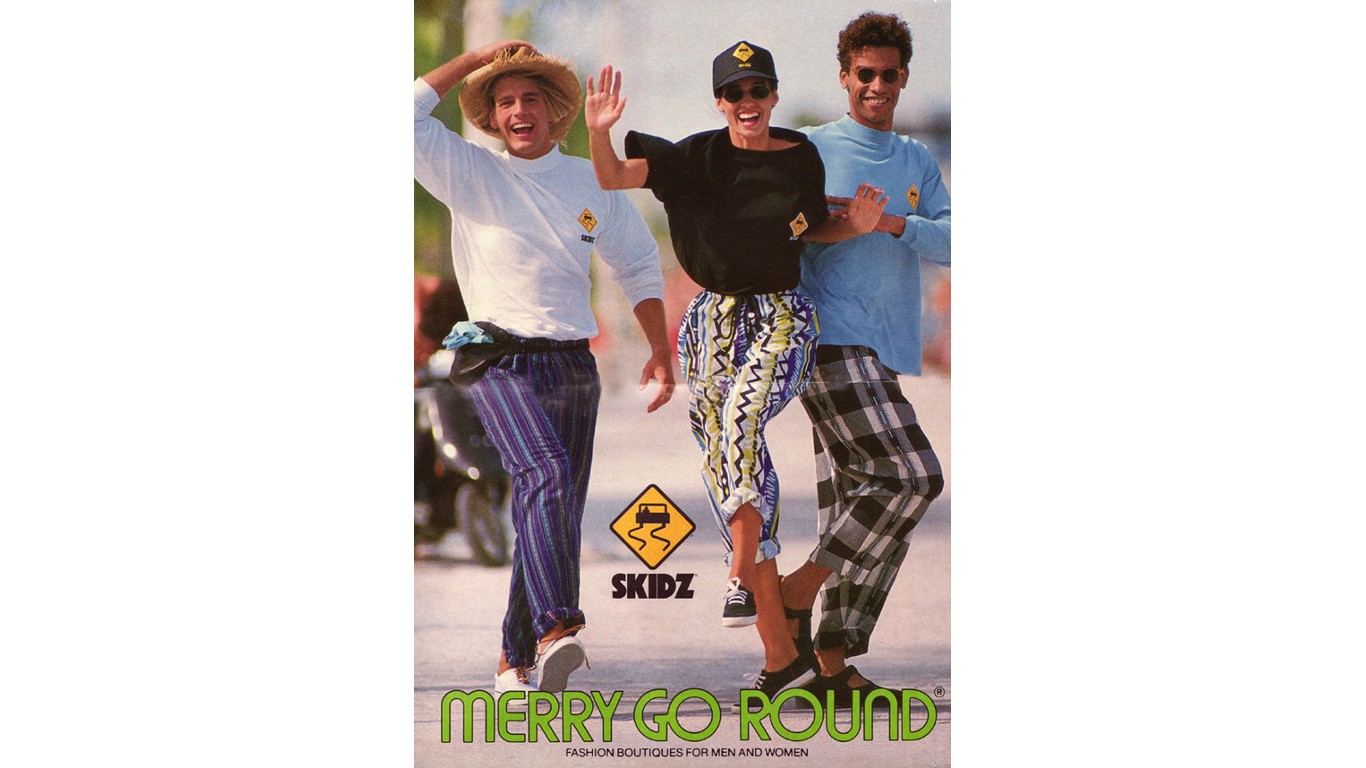
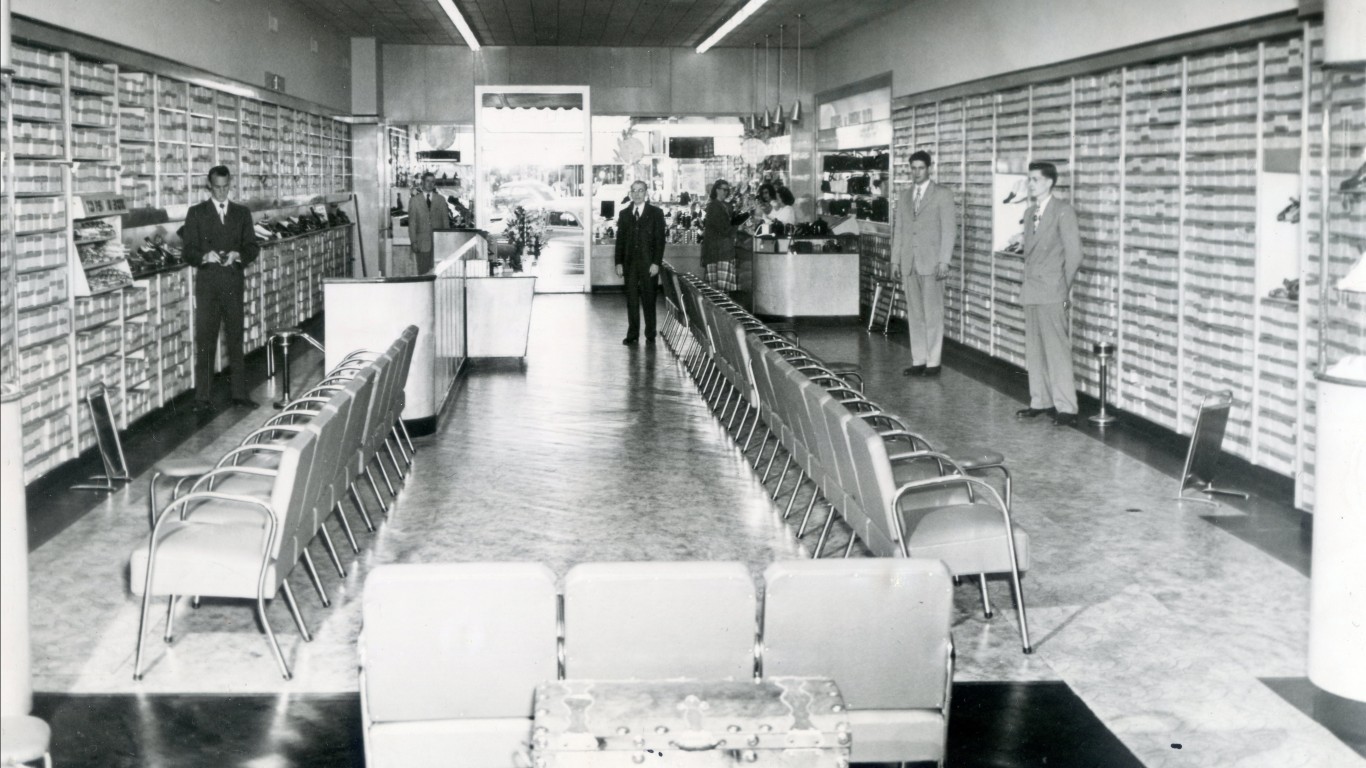
 24/7 Wall St.
24/7 Wall St.